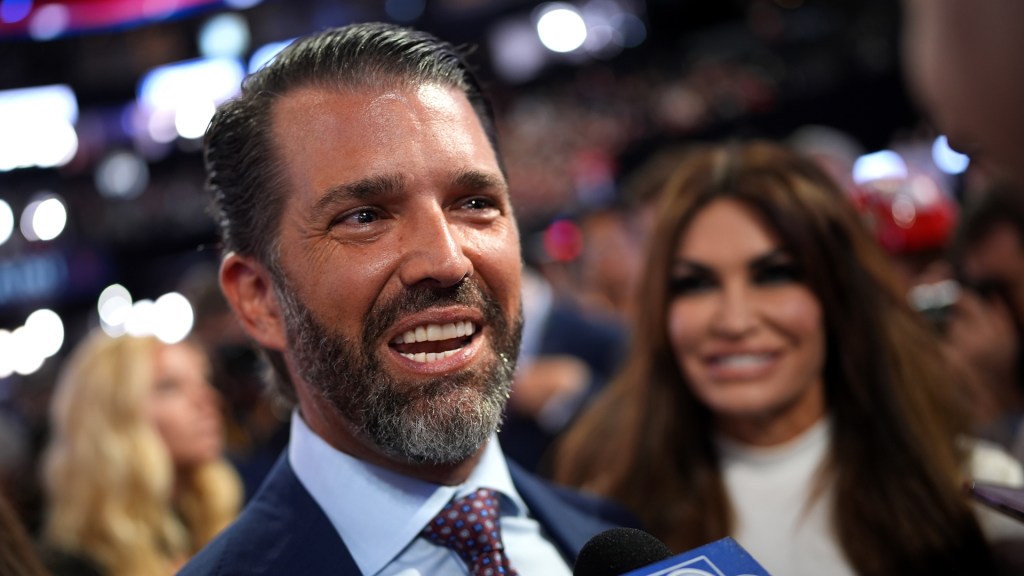Commentary
-
Our commentary partners will help you reach your own conclusions on complex topics.
The Edward M. Kennedy Institute for the U.S. Senate is, I’m sure, a fine institution, even if its had trouble paying its own bills.
What I don’t understand is why paying down the debt of this Ted Kennedy legacy should be part of coronavirus relief.
Yet it’s just one of many examples of states and localities spending federal COVID-relief money on frivolity or expenses that have no national importance or connection to the pandemic.
President Biden and the Democratic Congress, immediately upon taking over after the 2020 election, spent $1.9 trillion on the “American Rescue Plan.” Biden has bragged that this was the salvation of the economy.
Biden State of the Union:
(date: Mar 1, 2022)
That’s why one of the first things I did as President was fight to pass the American Rescue Plan.
Because people were hurting. We needed to act, and we did.
Few pieces of legislation have done more in a critical moment in our history to lift us out of crisis.
It fueled our efforts to vaccinate the nation and combat COVID-19. It delivered immediate economic relief for tens of millions of Americans.
Helped put food on their table, keep a roof over their heads, and cut the cost of health insurance. (end Biden clip)
Here’s the thing: Back in 2020, there was a real need to get money out the door.
Downtowns had gone silent, and employers had no money coming in thanks to stay-at-home orders
and general fear about the virus. One-time federal funding, such as the Paycheck Protection Program,
kept employers from shutting down or having to lay everyone off during the weeks or months that the businesses couldn’t operate.
States and counties saw huge new costs, as they had to increase social services and take up arms against the pandemic. Other 2020 bipartisan spending bills helped those who lost a job, or helped schools or businesses fight COVID, say by improving ventilation or adding testing capacity.
But come 2021 it was a different story. President Biden and congressional Democrats passed the “American Rescue Plan” simply to spend more money.
Some candidates had run for office on the promise of delivering more free money, and so the party passed the $1.9 trillion raft of spending
even though unemployment was already going down, lockdowns were mostly over, and states and counties were actually sitting on healthy budgets.
So how did cash-rich states and localities spend their Biden-era COVID aid? On whatever the heck they wanted to.
Massachusetts lawmakers earmarked $5 million to pay down the debt of the Edward M. Kennedy Center.
Dutchess County, New York set aside $12 million from American Rescue Plan to upgrade the stadium of the Hudson Valley Renegades, a farm team of the Yankees.
Forest Lakes, Minnesota, is upgrading its golf clubhouse with the cash.
Loma Verde, California, is building a new rec center.
Why should we begrudge Forest Lake golfers or the Hudson Valley Renegades’ fans nicer digs?
Because the massive spending by these counties and states is a huge driver of our current inflation.
These unneeded projects unrelated to COVID are bidding up the costs of supplies and labor, adding to shortages and making life much more expensive for the rest of us.
Bidenflation is driven, in large part, by the American Rescue Plan, which cannot reasonably be considered a rescue of anything or anyone.
Washington lawmakers like to bribe local politicians and businessmen with other people’s money, knowing that you—the consumer and taxpayer—will pay the price.
-
Universal school choice best for student, parents and communities
One of President Trump’s campaign promises was to “bring schools back to the states” and expand what he views as quality education through school choice, including vouchers and scholarships. As part of this effort, Secretary of Education Linda McMahon recently cut her department’s workforce by 50%, arguing that U.S. education will improve once its “bureaucracy”… -
Anti-deportation protests across US will hurt immigrants
On Feb. 2, thousands of protesters waving Mexican, Guatemalan and Salvadoran flags marched through downtown Los Angeles, shutting down the freeway in protest of Trump’s deportation plans. In Phoenix, Arizona, protesters rallied at the state capitol and outside federal immigration offices. Similar grassroots demonstrations are unfolding across the country in the early weeks of Trump’s… -
How woke Democratic policies are fueling devastating wildfires
With at least 25 people killed and fires still burning in Los Angeles, some are accusing politicians of mismanaging resources and worsening the crisis. President-elect Donald Trump has blamed California Gov. Gavin Newsom, a Democrat, claiming he is responsible for a low water supply, although city officials rebuked that allegation and have clarified that the… -
Democrats, GOP must urgently cooperate to block Trump tariffs
Incoming U.S. President Donald Trump has pledged sweeping tariffs on U.S. imports from around the globe, including from U.S. neighbors and allies, but especially on Chinese goods. Trump contends that his tariffs, while initially shocking the U.S. and global economies, will ultimately be good for the long-term economic health of the United States. But economists… -
Why Democrats have soured on mail-in voting
Over 4 million Georgians voted early in the U.S. 2024 presidential election, including a significantly higher number of Republicans than in 2016 or 2020, and many of them chose to do so by mail. The Georgia secretary of state’s office said that this early voting was unprecedented, representing 56% of all registered Georgia voters and…
Latest Opinions
-
 AP Photo
AP Photo
Hundreds of Jewish men chase woman misidentified as pro-Palestinian protester
-
 Scott Olson/Getty Images
Scott Olson/Getty Images
State worker in Arizona charged with migrant smuggling, boss’ job in question
-
 Getty Images
Getty Images
Australian radio station used AI host for months without listeners knowing
-
 Alex Kent/Getty Images
Alex Kent/Getty Images
Columbia University janitors sue protesters over Hamilton Hall takeover
-
 Bill Clark/CQ-Roll Call, Inc via Getty Images
Bill Clark/CQ-Roll Call, Inc via Getty Images
Republicans could increase tax on stock buybacks, sports team ownership
Popular Opinions
-
In addition to the facts, we believe it’s vital to hear perspectives from all sides of the political spectrum.






